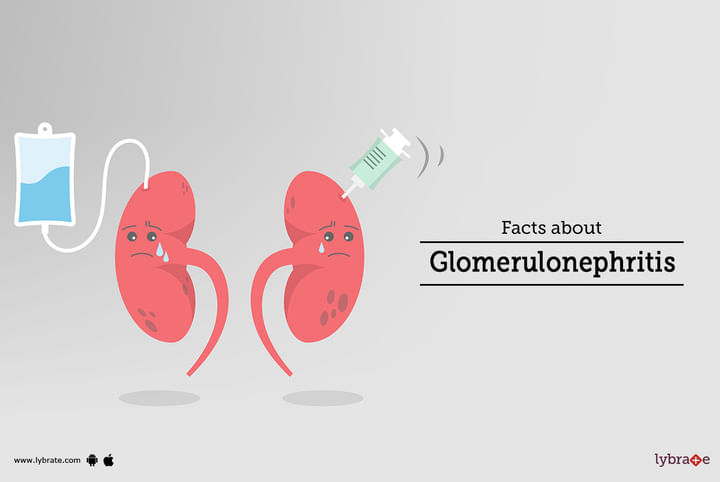Facts about Glomerulonephritis
Glomerulonephritis refers to inflammation of the glomeruli – structures made up of small blood vessels in your kidney. These knots of vessels help filter the blood and eliminate excess fluids. Damage to the glomeruli can cause your kidneys to stop functioning properly and possibly lead to kidney failure.
Types of Glomerulonephritis
Glomerulonephritis is of two types – acute and chronic.
Acute Glomerulonephritis
Acute glomerulonephritis can develop suddenly in response to certain infections, like strep throat or an abscessed tooth. This could happen due to your immune system overreacting to the infection. It usually goes away on its own, but in some cases, you may need prompt treatment to avoid long-term kidney problems.
Early symptoms of Acute Glomerulonephritis include –
-
Urinating less often
-
Puffiness in the face
-
Blood in the urine
-
Extra fluid in the lungs, which causes coughing
-
Elevated blood pressure
Chronic Glomerulonephritis
Chronic glomerulonephritis may develop over the years with no or fewer symptoms. Such a condition can permanently damage your kidneys and eventually lead to complete renal failure. Chronic glomerulonephritis does not have a definite cause. Genetic factors, as well as certain immune conditions, are believed to cause this type of glomerulonephritis.
Symptoms may develop as the disorder progresses. Signs may include –
-
Excess protein or blood in the urine
-
Increased blood pressure
-
Swelling in the face and ankle
-
Frequent urination at night
-
Foamy urine
-
Frequent nosebleeds
-
Abdominal pain
Diagnosis and Treatment
Diagnosis of glomerulonephritis can be difficult, as the causes are often unknown. However, your doctor may rely on the following procedures to detect the disorder –
-
Urine test to detect protein or blood in the urine
-
Kidney function that involves examining blood and urine samples to evaluate the levels of specific substances released by the kidney
-
Kidney biopsy that uses a tiny needle to collect a sample of your kidney tissues
-
Imaging tests, such as CT scans, X-ray and ultrasound
Treatment depends on the type of glomerulonephritis – whether acute or chronic – as well as its underlying causes and severity of symptoms.
-
Medications, like antibiotics, are given to destroy the pathogens causing the infection. Immune-suppressing drugs and corticosteroids may help control inflammation.
-
Temporary dialysis is usually recommended for treating acute glomerulonephritis. It helps filter waste products and remove excess fluids from the body.
-
For patients with chronic glomerulonephritis, doctors recommend calcium supplements and diuretics to ease swelling
-
Kidney transplant is usually the last choice of treatment when your kidneys stop functioning completely
People with glomerulonephritis are advised to control their blood pressure and blood glucose levels and continue with their medications.


+1.svg)
